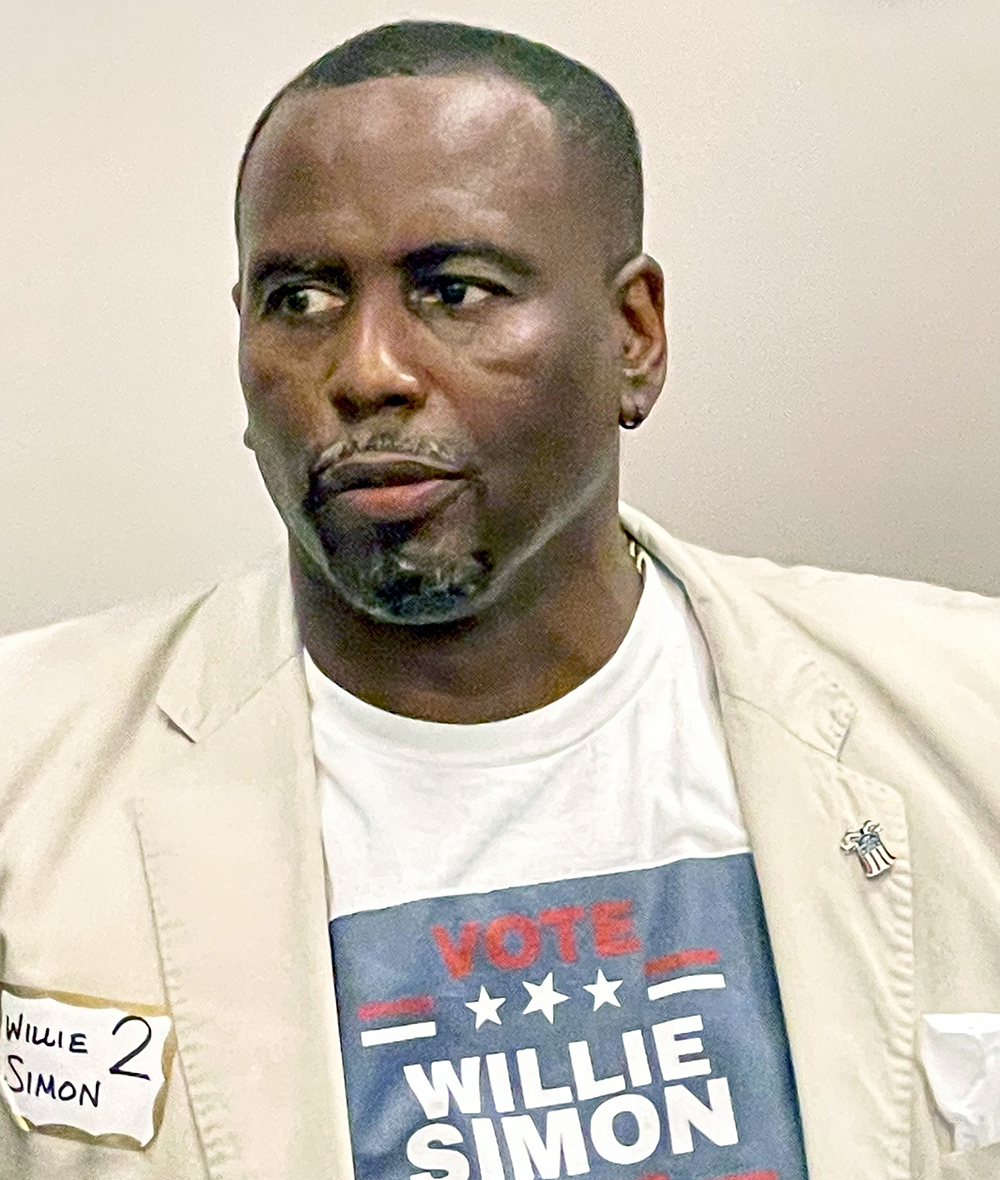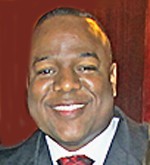On its second try this year, the Shelby County Democratic Party (SCDP) — newly reconstituted by the Tennessee Democratic Party after an abortive effort in March — managed to elect new leadership on Saturday at the Teaching and Learning Academy on Union Avenue.
The main contestants were the same as had been the case two months earlier — Willie Simon, the ultimate winner, and Jeff Etheridge. That prior occasion had broken down amid tumult and shouting, ostensibly regarding disagreement over bylaws up for adoption by the local party.
In the aftermath, the state Democratic organization revoked the local party charter, a circumstance that had also occurred in 2016. Then as now, existing internal divisions loomed larger than any technical circumstance.
As a reminder — inadvertent, perhaps — of the local party’s stormy history, one of the welcoming messages flashed on a large screen to the more than 300 participating delegates on Saturday was this somewhat cryptic one: “Any conduct unbecoming a Democrat is subject to removal.”
Presiding over things, in lieu of state party chair Rachel Campbell of Chattanooga, was former state party chair Hendrell Remus of Memphis and Nashville, who cautioned, “We don’t want any Republicans sneaking in here.”
Among the party luminaries on hand for the event — some voting, some not — were Shelby County CAO Harold Collins and businessman/entrepreneur J.W. Gibson, both declared candidates for county mayor in 2026; assessor candidate Jay Bailey; Memphis Congressman Steve Cohen; DA Steve Mulroy; and numerous city council members, county commissioners, and state legislators.
After prolonged delays, the convention got down to order, and three candidates were nominated — Simon, the erstwhile acting chairman of the local party before its most recent revocation; Etheridge, president of the Germantown Democratic Club; and one Michael O. Harris. (The latter’s nomination occasioned some confusion inasmuch as a recent local chair had been the similarly named Michael L. Harris.)
After one round of voting from attendees grouped according to the 13 County Commission districts, the balloting went: Simon, 136; Etheridge, 130; and Harris, 33.
Harris was dropped for a second round, which went: Simon,149; Etheridge, 139.
It remains to be seen whether Simon can unify the local party. One measure of the difficulty of that task is the fact that, as in the last prior completed vote for a party chair, in 2023, the votes were split almost 50-50.
Whether coincidental or not, the contest this year had similarly involved a white candidate, Etheridge, with support in the suburbs, and a Black candidate, Simon, whose base was the inner city.
African Americans were overwhelmingly in the majority of those taking part on Saturday, as they are in Shelby County Democratic primary voting, generally.
It would follow, then, from the closeness of the vote on Saturday, that racial affinity was but one factor, among several, weighing on the outcome.
Other officers elected Saturday were: Will Richardson, first vice chair; Ruby Powell-Dennis, second vice chair; Telisa Franklin, recording secretary; and Charity Bianca, corresponding secretary.

 JB
JB